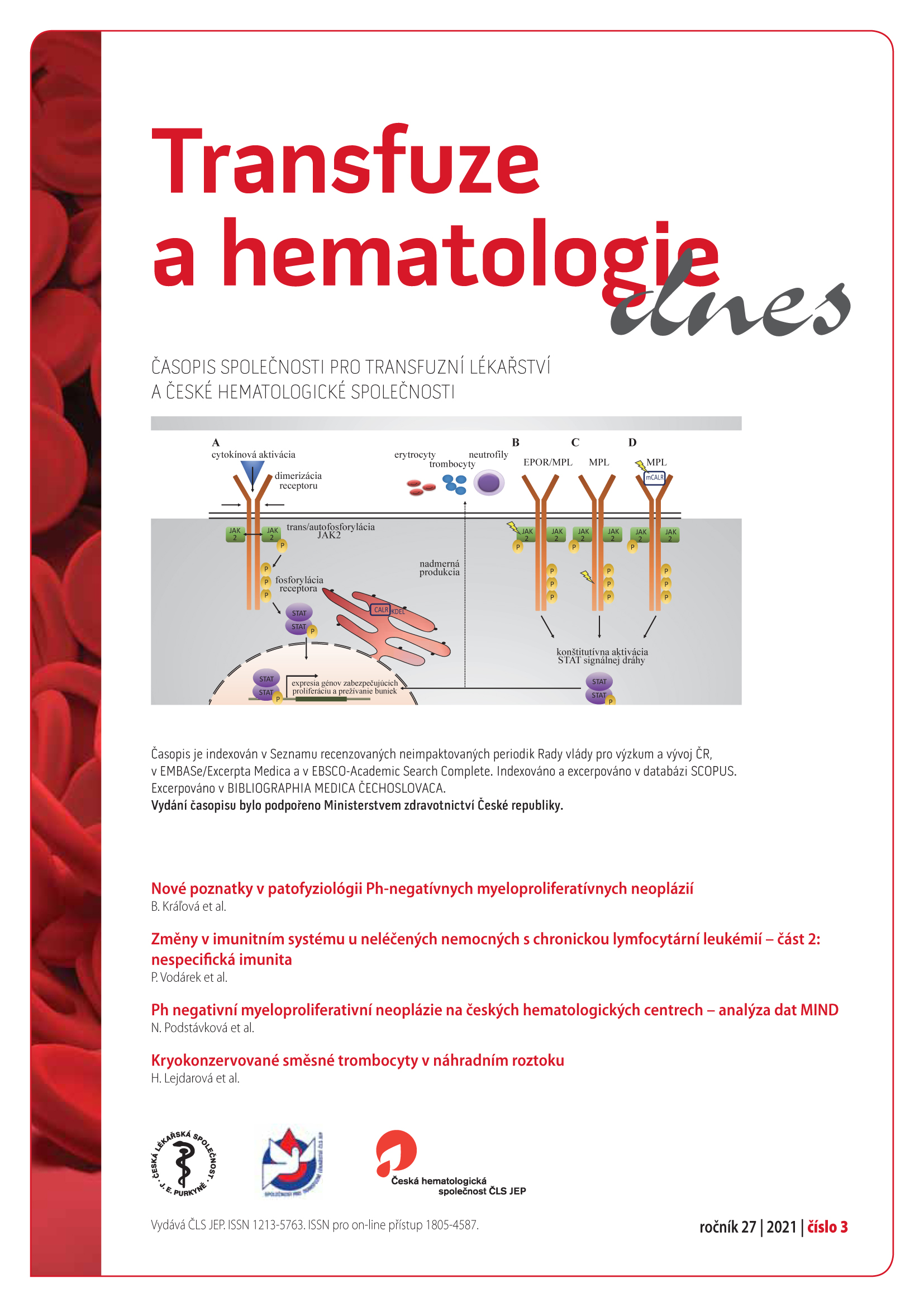NEW INSIGHTS INTO THE PATHOPHYSIOLOGY OF MYELOPROLIFERATIVE NEOPLASMS
Keywords:
myeloproliferative neoplasms, JAK2, CALR, MPL, genetic predisposition, MPN heterogeneityAbstract
Myeloproliferative neoplasms (MPNs) represent a group of related clonal hematological disorders with overlapping phenotypes. The main typical features are excessive production of fully differentiated myeloid cells, chronic inflammation, and a tendency to transform to acute myeloid leukemia. Clonal proliferation in MPN is driven by various somatic mutations, most notably in Janus kinase 2 (JAK2). However, MPN phenotypic diversity cannot be explained only by cooperation of acquired driver mutations with additional somatic mutations detected in MPN patients. Indeed, MPN initiation and clinical phenotype is a product of complex interactions involving both genetic and non-genetic factors. Recently, genetic predisposition appeared as an important determinant of MPN pathophysiology, particularly of clonal expansion. This review provides insights into complex, newly emerging factors contributing to MPN pathobiology.


